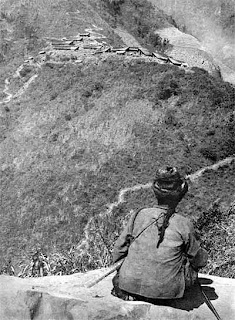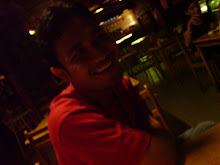
'Dynamic' is an overworked word. But if one says that theprimary feature in Dr. Leach's analysis is its attempt to providethe elements of a dynamic theory for social anthropology, thepoint will be generally understood. What is meant is ananalysis of forces in movement or principles in action. Much ofsocial anthropology nowadays is concerned with institutions inchange. But the treatment is usually mainly descriptive, orwhere it becomes abstract the concepts are apt to become overelaborate, highly artificial, and out of relation to the real worldof observed human actions in specific societies. What Dr.Leach is attempting to do is to handle dynamic theory at ahigher level of abstraction than has been done heretofore insocial anthropology while still using the materials from empiricalsocial observation among named groups.
He works forcibly and elegantly. To do this he makescertain assumptions. These involve the notion of descriptionsof social systems as models of a social reality. There is agrowing tendency in social anthropology, and rather a slipshodone, to call any set of assumptions or abstractions used as a basis for discussion, a model. At times the notion serves as anexcuse for an evasion of reality, by emphasising the personalcharacter of the construct. But with the author a model isclearly a representation of a structure with the parts articulatedor related in such manner that manipulation of them is possiblefor the illustration of further relations. Dr. Leach has alreadydemonstrated his skill in such manipulation in his article onJinghpaw Kinship Terminology, which he described as 'anexperiment in ethnographic algebra'. The essential feature ofthis analysis was the demonstration that by taking a limitedset of assumptions about kinship structure, and by relatingthem in operation in the simplest possible manner, a behaviourscheme was found adequate to provide an explanation in termsof ideal rules for the noted events in a real society.
A consequence of Dr. Leach's analysis was to stress againthe distinction drawn by Malinowski and others between'ideal' and 'real' (or 'normal') patterns of behaviour. But inDr. Leach's hands this distinction assumes a new importance. To him it is the ideal patterns -- the social relations which areregarded as 'correct' -- which are expressed in the model whichgives the structural description of a social system. The necessary equilibrium of the model as a construct means thatessentially it is debarred from providing in itself a dynamicanalysis. The difficulty lies not so much in introducing timeabstractly as a factor into the model as in getting into it a trueexpression of what is really relevant in actual conditions.Application must therefore be made to the observation of whatpeople actually do in their normal everyday life to give a basisfor a dynamic consideration, a consideration of structuralchange. The situation here is analogous to that in economictheory. But the social anthropologist has an advantage overthe economist in that from the beginnings of the science, ithas been the 'real world' that he has studied at first hand.The anthropologist is already familiar with the raw stuff ofsocial change.
In actual life individuals are continually faced by choicesbetween alternatives for action. When they make these choicesDr. Leach believes their decisions are made commonly to gainpower -- that is, access to office or to esteem which will lead to office. The development of this argument is pursued with awealth of detail and subtlety of interpretation that must command the admiration of every careful reader. His challengesto accepted views may not please everyone, but the readerwill gain much by the way from the author's direct presentation, his complete intellectual honesty, and the freshness ofhis approach. Some of us, for example, have not hesitatedto tell our students in private that ethnographic facts maybe irrelevant -- that it does not matter so much if they getthe facts wrong so long as they can argue the theories logically.But few of us would be prepared to say in print, as Dr.Leach has done, that he is usually bored by the facts whichhis anthropological colleagues present. And who of us alsousually feels inclined to state so bluntly at a point in his argument that his interpretation is completely at variance withalmost everything that has previously been published on thesubject? This is refreshing candour; it awakes the reader'sexpectations and he will not be disappointed.
As yet Dr. Leach's dynamic theory is still largely a special,not a general, one. This is so for two reasons. The first isthat it is intended as yet primarily to refer to, and to explain,the behaviour of people in North Burma. It is true thatexamples from remote fields are cited. Yet while in boundaryterms many 'tribes' must be ethnographic fictions, this is notso everywhere. The notions of 'becoming something else' inthis situation, as Kachins become Shans, or gumsa peoplebecome gumlao, are specific ethnographic phenomena that mayhave only a restricted analogy. They are indeed almost an'ideal type' of the phenomenon of becoming another socialbeing.
Secondly, some of Dr. Leach's concepts are of a special order.I do not refer here to his redefinitions of myth and of ritual,which in their novelty offer a stimulating way of considering social relationships. Nor do I refer to his use of the terms 'socialstructure' and 'social organisation', for which each of us hashis personal idiom. But I refer to his thesis that seeking forpower is the basis of social choice. The Italian Renaissanceand our own recent history have good examples to supporthim. And his contention is in line with many trends of modernthought. Yet the concentration of power and status on the quest for esteem as leading to office, suggests either an unduerestriction of the field of motivation or a re-interpretation ofthe power notion in terms so wide as to include almost anysocial action. I would, from my own Tikopia material, givesupport to Dr. Leach's views both as regards the role of mythand the cardinal importance of power notions for group action.I would think that the study of other Polynesian people,such as the Samoans or the Maori, would corroborate this too.And yet one feels that there is some speciousness in sucha monolithic explanation. For the operation of social affairsin Polynesian communities to seem explicable, allowance mustbe made empirically for notions of loyalty and obligation whichcut across the narrow confines of group power interests. Andin other ethnographic fields it would seem that valuations ofa moral and religious order enter and jostle the power andstatus-seeking elements.
All this is to indicate that the stimulation of Dr. Leach'stheories is wider than the ethnographic province with whichhe has primarily dealt. The book will appeal to those whoare interested in problems of government in undevelopedterritories as well as to those who wish to have a really goodfirst-hand study of one of the more primitive types of South-East Asian society. But to me its prime importance is as amajor contribution to the theory of social systems. The bookis a superb piece of craftsmanship done to an exciting design;the best tribute one can pay to it is to hope that before toolong the author will have the opportunity to repeat the design,with modifications to suit another material of as interestingquality.
Note: The book was written by Edmund Ronald Leach and published in 1954 by Harvard University Press.


2 comments:
hey bapak dugong!!!!
bersediakah kamu utk membaca kutukan aku yg seterusnya?????
p/s: anda disaratkan utk minum air badak cap kaki tiga slps ni utk mengurangkan panas badan lepas baca komen ni (",)
kutukan 1:
typo error di situ-sana-sini... space bar laptop hang dh rosak ker??? byk perkataan yg ang miss space bar. hancusss!!!!! mcmana nk jadi the 'coolest' anthropologist in the universe nih if kt blog ni pun ang failed (",)
sila preview ang punye entry seblm click publish post.
actually this entry is abt book yg ditulis oleh Dr. Leach and ur opinion abt his analysis of dynamic theory for social anthropology.. correct me if i'm wrong (",)
aku pun tak penah baca buku Dr. Leach ni. tp rasa2nya dia ni skrg maybe dh tua kot coz buku dia dipublish in 1954.
tp sesetgh lelaki makin tua makin hensem ;p mcm hero james bond quantum of solace tue (",)
cik meghela. sorrylah about typo error tue. i take not ur comment. k?
yup the book was written by Dr Leach. it elaborates structural opposition perspective actually. perspective tue is an alternative to organic perspective of society. menarik actually.
dia dah meninggal last three years, at the age of 118. met him once in 2004. dia mai KL for international conference.
hmmmm.... sah2 menghela!!!
Post a Comment